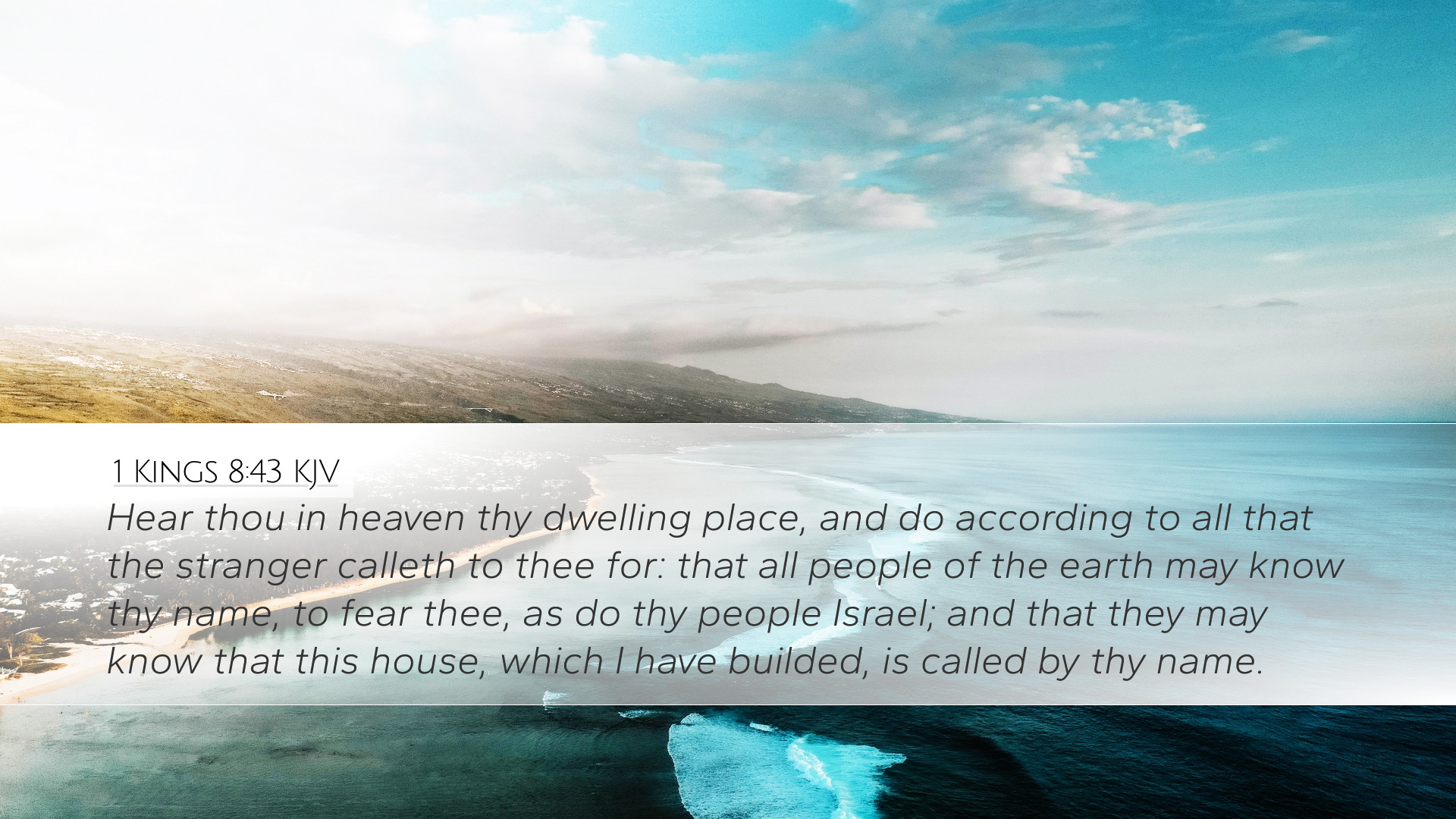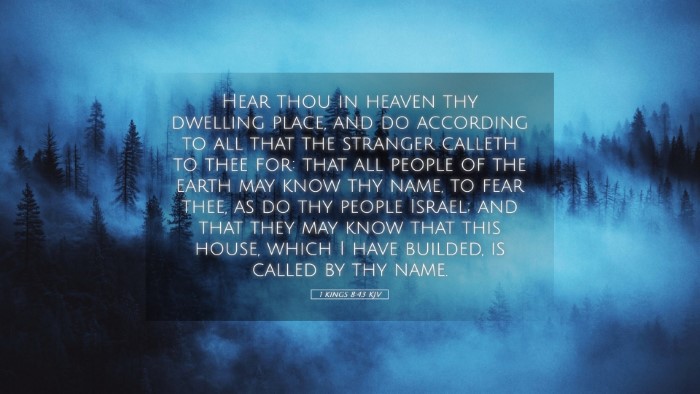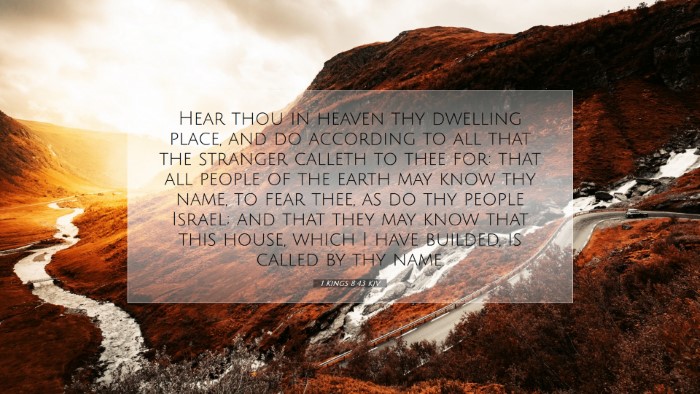Bible Commentary on 1 Kings 8:43
Scripture Reference: 1 Kings 8:43 - "Hear thou in heaven thy dwelling place, and do according to all that the stranger calleth to thee for; that all people of the earth may know thy name, to fear thee, as do thy people Israel, and that they may know that this house which I have builded is called by thy name."
Introduction
This verse falls within Solomon's dedication of the temple, a pivotal moment in the history of Israel, where the King petitions God for His attention and action even for those who are not part of Israel. It highlights themes of divine presence, intercession, and the universal appeal of God's glory.
Contextual Background
In the larger context, Solomon had completed the temple, a house not just for the Israelites but for all nations. His prayer aims to establish the temple as a place for universal worship and recognition of God’s sovereignty.
Insights from Public Domain Commentaries
Matthew Henry's Commentary
Matthew Henry emphasizes the significance of God's attention to prayers of both Israelites and foreigners. He notes that God's house should serve as a beacon for all nations, highlighting the nature of God who is accessible to all who seek Him. Henry states:
"Solomon acknowledges God's omnipresence and that worship should not be limited to the Israelites alone but should extend to all who call upon His name."
He also points out that the temple's purpose is not merely for sacrifice but as a means for revelation and relationship, thus allowing a broader understanding of God’s grace and mercy.
Albert Barnes' Notes
Albert Barnes provides a detailed analysis of the prayer, bringing attention to the phrase “that the stranger” which represents Gentiles or non-Israelites. He highlights that this inclusivity is rooted in God's overarching plan for redemption:
"The grace of God is wide and all-encompassing; prayers addressed to Him by strangers are not overlooked, and He delights in those who seek Him, regardless of their background."
Barnes notes the significance of the temple as a prayer site for all nations, indicating that recognition of God by the nations demonstrates the success of Solomon's temple, as a place meant for the glory of God.
Adam Clarke's Commentary
Adam Clarke focuses on the theological implications of prayer and divine response. He remarks on how the verse reflects God's willingness to respond to anyone who calls upon Him:
"It displays the great truth that while God is particularly the God of Israel, He is also willing to be the God of anyone, should they truly desire to seek Him."
Clarke argues that this prayer illustrates God’s invitation to all mankind, emphasizing that worship and prayer are critical elements in recognizing God’s name and thus encouraging eclectic worship in the temple.
Theological Reflections
From these commentaries, several theological reflections emerge:
- Divine Accessibility: God is portrayed as reachable from any nation, indicating that His grace is not limited to a particular people but extends universally.
- Importance of Intercession: The act of interceding for others, including foreigners, illustrates a profound understanding of community and the broader implications of God’s kingdom.
- Recognition of God’s Name: Emphasizing the name of the Lord signifies His character, authority, and the enduring relationship He desires to have with His creation.
Practical Application
For pastors, students, and theologians, several points of application can be discerned:
- Inclusivity in Worship: The understanding that the house of God is a place for all encourages a welcoming approach to worship, reflecting God’s heart for the nations.
- Encouragement of Prayer: The invitation to pray for all people serves as a reminder of the church's mission to reach out to every individual, underlining the significance of prayer in the believer's life.
- The Role of the Church: Just as the temple represented the presence of God, churches today should embody this same principle, functioning as places of hope and appeal for all who seek God.
Conclusion
1 Kings 8:43 is rich in theological depth, emphasizing the all-encompassing nature of God’s grace and the importance of intercession for others. Solomon's prayer serves as a model for worship that transcends ethnic boundaries and calls on all people to recognize and acknowledge God's sovereignty. This verse invites a broader discourse on the nature of God’s redemptive purposes for humanity and encourages believers to embody inclusivity and grace in their communities.


